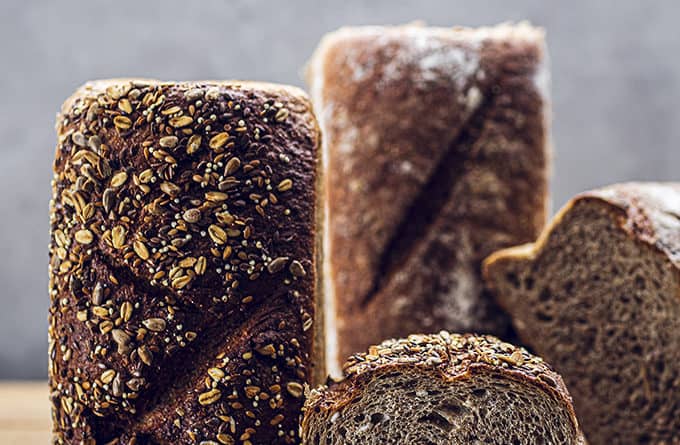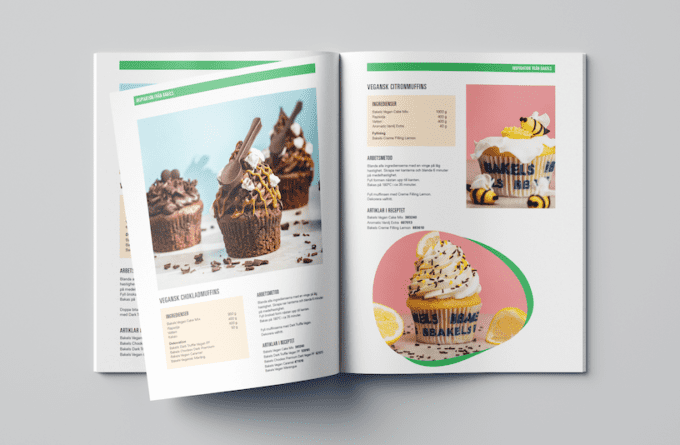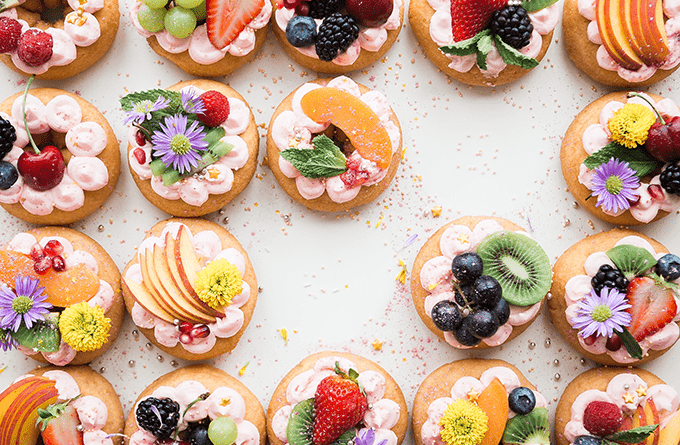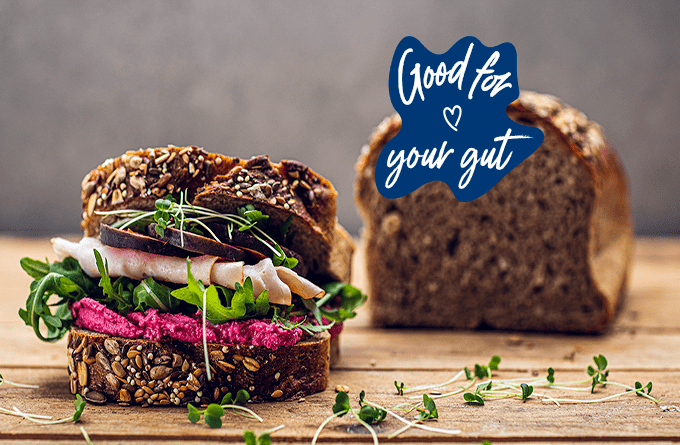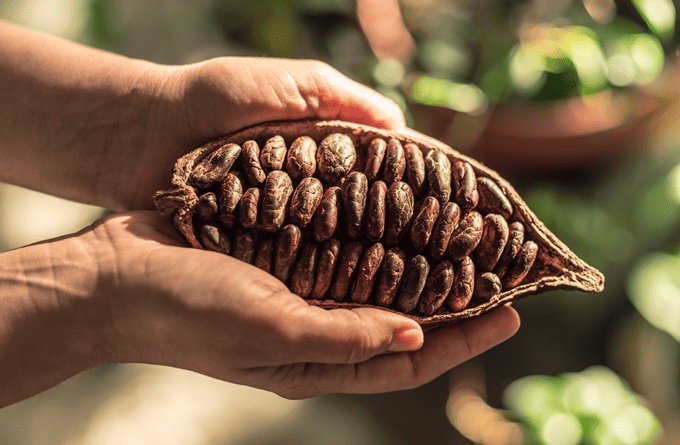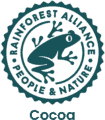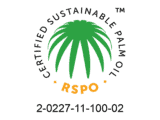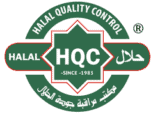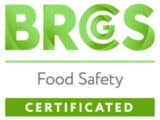The pandemic fundamentally changed the world. The baking industry in particular struggled amidst new challenges, surviving thanks to creative solutions and adaptations. We have watched as some businesses changed their format completely, new markets suddenly emerged, and product development followed new trends.
The pandemic intensified and accelerated some already existing trends at a rapid rate. Examining these patterns closely can give us the tools to meet new circumstances down the road.
Below we will highlight eight trends and insights within the baking industry to use in investments and projects for 2022. We have hand-picked and analysed the most valuable findings from experts in our field with an intention to shed light on the relevant trends you need to know in order to reach the new globally-aware consumer.
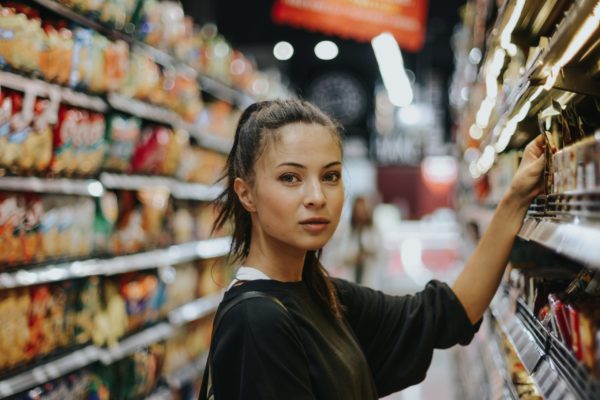
1. HYGIENE IS KING
Consumers associate good food safety with high quality. The pandemic has created an even higher demand and visibility for safe and hygienic practices. Forbes highlights that cleanliness now is synonymous with safety. Brands and companies that show how high hygiene levels are kept are the ones that win consumer confidence in the long run. The consumer connects food safety with quality.
A rise in sealed packaging and individually wrapped food gave the consumer control and showed that producers have the consumers health and safety in mind. In-person customers could take safety into their own hands using contactless payment methods. We predict that this trend of being able to feel safe as a consumer will continue regardless of generation. How can you meet consumer demands in this subject?
The idea of cleanliness also drove the trend towards plant-based foods and clean label, as these types of products are surrounded by a “halo of hygienic” and thus are considered a safe and secure choices for the consumer.


2. CLEAN LABEL AND A CLEAN CONSCIENCE
Transparency, simplicity, and clarity have become paramount for the consumer. Short ingredient lists earn consumer trust. Ingredients that people recognise project a safe, reliable, and genuine tone. Studies show that 6 out of 10 global consumers want to know more about the origin of what they eat. Hang on this wave of cleanliness with products based on pure and few ingredients.
A more responsible lifestyle has also become increasingly important for the consumer. We connect what we eat with our identity and the values we want to be associated with. Interest in plant-based products is steadily increasing and gained even more momentum during the pandemic.

3. HEALTH IS WEALTH
Physical and mental well-being have long governed our consumption. But recently, consumers are even more invested in understanding how the choices they make impact their health. In doing research about COVID-19, people learned that good gut health can have an effect on the immune system, and a healthy body weight with a balanced diet protects us from major health threats. A survey found that 42% of global consumers say that they’ve now adopted long-term approaches to their personal health and eating habits. This consumer resolution has generated demand in new areas.
Another survey showed that 60% of global consumers are actively seeking foods that offer health-boosting benefits, compared to just over 40% five years earlier. Popular search engine queries included enriched foods that contain vitamins D, C, E, K, zinc, pre-, pro- & postbiotics, whole grains, and fiber. Innovation and product development in the industry will reflect these consumer interests during 2022.
Although nutrition and healthy eating became all the rage, consumers still sought after comforting sweet treats. Societal and personal stress from the pandemic had people indulging in their favourite goodies. This combined interest in nutrition and comfort eating brought a rise in demand for products with natural sweeteners and “no sugar added”. At the same time, state governments continued to crack down on sugar and salt consumption, continuing the dialogue of community health as a shared responsibility. Mintel estimated that the sugar reduction market could generate an additional US $36 million over the next three years.
As important as physical health is mental health. We’ve become more aware of the importance of reducing stress, raise our spirituality and getting a good night’s sleep. We chose herbal remedies like chamomile, lavender, yuzu, chaga, and ginger to boost wellness and mental relaxation. Even without much medical research to back their effect on our health, these natural products are widely used to soothe and comfort consumers.

4. DIGITAL TRANSFORMATION IN TURBO MODE
In just a few months’ time, the pandemic generated massive changes in the way companies do business as global lockdowns pushed companies over a technology tipping point. Business underwent digital transformation that in normal circumstances would have taken several years to do successfully and many of these adaptations seem to be here to stay. Production, distribution, sales, and marketing have taken great leaps forward. Forward-thinking businesses have engineered powerful online shopping platforms and revolutionised digital ordering systems to minimise physical contact.
It’s clear that consumers spend more time and money on online channels than pre-pandemic rates. Mobile sales skyrocketed and social media platforms became our information sources. As new sales channels emerged, so did new ways to meet the customer. Users scrolled to see coffee and food go digital as Dalgona Coffee earned 100 million views on social media and famous Tik Tok pasta videos went viral. People began experimenting with drinking and eating trends at home, creating a flurry of new wants in the consumer market.
As digitisation increases, so does the importance of a good user experience. Speed, simplicity, and accessible online shopping experiences are the expectation as people have become more accustomed to using digital solutions in their everyday lives. Online shopping is transforming retail centers into storage facilities and intermediaries for orders and deliveries. A survey showed that 61% of global consumers want to be able to buy food around the clock and 70% believe that they will order even more food online in the future.


5. ADVENTURE AND ESCAPISM
Closures, work from home and quarantines have made us yearning for adventure, inspiration, and opened us up to new influences. Enduring tough times calls for treating ourselves to luxury items and flair. Luxury in our industry can be eye-catching pastries, exotic flavours and exciting, innovative baked bread. Luxury can also be good quality, glitter and glam, wild colours, fantastic decoration, decadence, anything extra – people are craving it and 2022 is expected to be the most festive year ever.
Although we couldn’t physically visit exotic places, we travelled the world through food and indulgence, experiencing foods and baked goods that fed our imaginations. We were attracted by new colours and shapes, influenced by exciting spice blends and flavours from other continents. In the new normal post-covid era, we will continue to seek spectacular pastries and indulgence.
How are you going to meet the consumer craving colour, flavour and experiences?

6. A WAVE OF CARING
As a reaction to feelings of isolation brought on by the pandemic, people embraced being a part of something greater. Movements like Black Lives Matter and the global climate strike led by Swedish Greta Thunberg, orchestrated a pursuit of positive change. Civic engagement, feminism, racial and social justice, the #metoo movement, the climate crisis, and other important topics dominated the social narrative.
Consumers demonstrated their power by engaging in public discourse via widely-circulated campaigns on social media. If a brand was accused of unethical behaviour or misconduct, they were quickly blacklisted. On the other hand, brands that made commitments to reduce carbon emissions and boost green practices came out on top. A survey by Innova Market Insights showed that 75% of global consumers have become more concerned with sustainability and are more likely to choose eco-friendly options.
The goal of more equitable and sustainable societies has created a surge in choosing natural, ethical, and green ingredients. In addition to sustainable ingredients, consumers want to know the full story behind the products they buy. “Where are the ingredients sourced? How are they produced, and in what working conditions? Is the shipping and packaging process sustainable?” Environmentally-friendly packaging for newly launched food products rose to 73% in 2020 compared to 60% the year before.

7. COMFORT IN NOSTALGIA
During uncertain times, people turn to what they recognise and what makes them feel safe. As a reaction to the chaos and crisis of the pandemic outbreak people went nostalgic. We reminisced with the music, films, clothes, colours, and sensory experiences that jogged our memories and simply made us feel good.
Product launches and reboots played to fond childhood food memories like salted caramel, birthday cake flavoured products, smores treats, and strawberry shortcake. Many pastries appeared in pastels and retro colour spectrums as a nostalgic flirt.
This sense of nostalgia paved the way for hybrids of old classics like Cronuts, Cruffins and Biscakes. How are you going to approach this nostalgic wave which we will continue to see in 2022?


8. VEGAN ON THE RISE
Going vegan is a way for consumers to reduce their climate footprint and focus on their personal health. Consumers buy-in to products that help them do something good for themselves and our planet.
The pandemic accelerated what was already a notable change in eating and allowed us more time to experiment with new foods and recipes. Plant-based eating went mainstream and consumer attitudes towards vegan products were evolving. Before, veganism was a value-based choice that could not be compromised, while now more people are chosing vegan foods without completely excluding animal products. Taste, quality, and ethics drive this new hybrid diet.
In 2020, 10% of new food products launched in the UK were labelled vegan, while that figure was around eight percent the previous year, and only three percent in 2018. 38% of consumers in the same market said they wish to see a wider variety of plant-based alternatives.
This is a trend that will soon no longer be a trend but more a natural part of our lives where more and more people choose plant-based alternatives.



